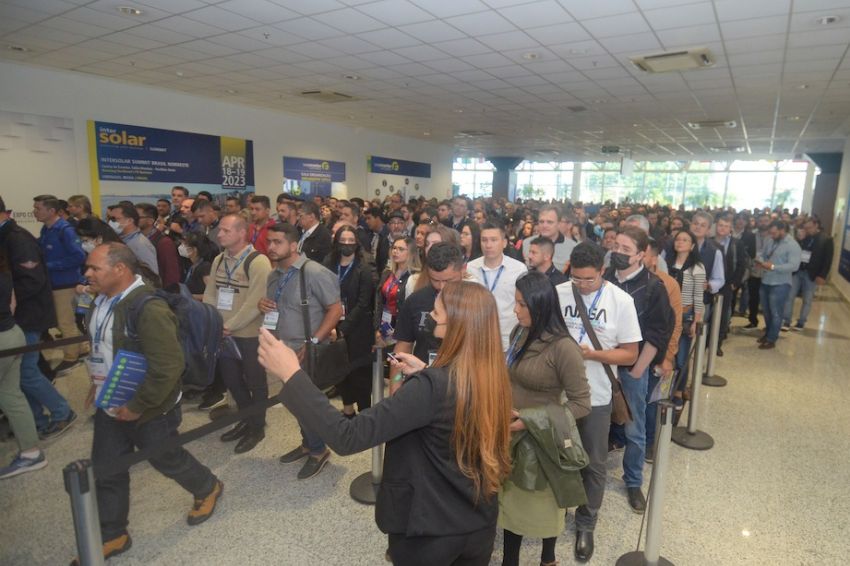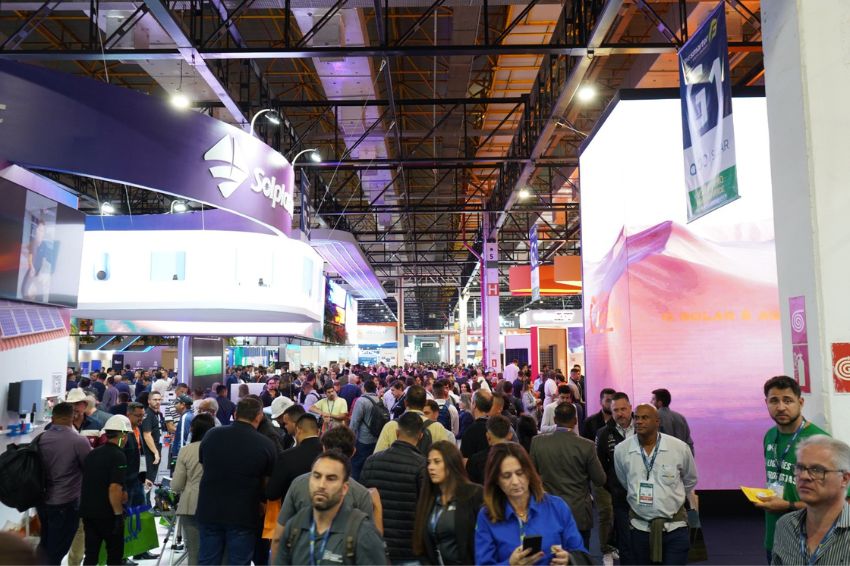This Tuesday (29th) the tenth edition of Intersolar South America 2023, held at Expo Center Norte, in São Paulo. The fair and congress has 500 exhibitors and, according to the president of the ABSOLAR Board, Ronaldo Koloszuk, The forecast is that more than 50 thousand visitors will participate in the three-day event until next Thursday (31).
In addition to Koloszuk, the opening ceremony Intersolar was attended by Adalberto Maluf, national secretary of Urban Environment and Environmental Quality; Rodrigo Sauaia, CEO of ABSOLAR; Florian Wessendorf, general director of solar Promotion International; Camila Ramos, director of CELA, Gilberto Natalini, Secretary of Climate Change of São Paulo, representing Mayor Ricardo Nunes; and Celso Mendes, consultant at Aranda Editora.
According to Koloszuk, the perspective is that the solar source will become the largest energy generation technology in Brazil by 2040. In the association's accounts, it is possible to install another 46 GW of centralized solar energy in the country by 2030. The source already represents 15% of the Brazilian electrical matrix, with 33.5 GW of installed capacity, occupying the second position in power generation technology electrical energy in the country.
Since 2012, solar energy in Brazil has attracted accumulated investments of around R$ 163 billion (US$ 30 billion) and has already generated 1 million jobs. Furthermore, it has already secured more than R$ 46.6 billion in revenue for public coffers.
According to Sauaia, the prospect is that solar energy will generate more than R$ 86 billion in systemic benefits to the electricity sector by 2031, reducing Brazilian consumers' electricity bills by 5.6%.
Sauaia recalled that the country still faces some challenges, such as the correct regulation and application of Law 14,300/22, the calculation of the systemic costs and benefits of distributed generation, the regulation of the energy storage market, as well as allowing the DG sector have access to tax incentives such as REID and debentures encouraged to make financing for solar energy cheaper, and include the photovoltaic source in power and capacity reserve auctions to make solar provide ancillary services.
“Despite recognizing this great advance in the sector, ABOLSAR is watching and working for you to overcome the obstacles and challenges that are on the horizon, so that we can all have more opportunities that are not materializing due to these problems”, said the executive.
Sauaia also spoke about the development of a solar industry in Brazil. “The world is looking to diversify the solar industry, to take solar energy to other regions, so that we have more production hubs, and Brazil wants to be one of these hubs. But this won't happen without good public policies.
We are working with the Federal Government to cbuild the foundations of a competitive industrial policy, without artificial barriers, without reducing taxes that harm the market, so that we can move forward with the development of a national industry that does not cannibalize technology in our country.”










